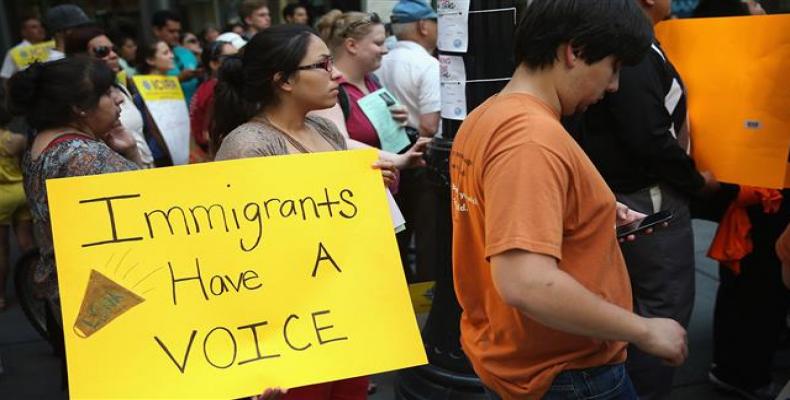Washington, August 15 (RHC)-- A coalition of 13 U.S. states have filed a lawsuit against the administration of Donald Trump, seeking to block a new rule that would significantly reduce legal immigration by denying visas to poor migrants.
The lawsuit was filed in a federal court in Spokane, Washington, suing the U.S. Department of Homeland Security, which oversees the U.S. Citizenship and Immigration Services (USCIS). The lawsuit is similar to one filed earlier this week by the city of San Francisco in California.
“The Trump Administration’s message is clear: if you’re wealthy you’re welcome, if you’re poor, you’re not,” Washington state Attorney General Bob Ferguson said in a statement. “This rule is un-American, anti-immigrant and unlawful.”
The other states joining Washington in the lawsuit are Colorado, Delaware, Illinois, Maryland, Massachusetts, Michigan, Minnesota, Nevada, New Jersey, New Mexico, Rhode Island and Virginia.
The new rule, which was unveiled this week and takes effect October 15, would reject applicants for temporary or permanent visas for failing to meet income standards or for receiving government assistance such as welfare, Medicaid, food stamps and public housing.
Some experts say the rule could cut legal immigration in half by denying visas and permanent residency to hundreds of thousands of people. Federal law already requires those seeking green cards and legal status to prove they will not be a burden to the U.S., but the new rule expands the definition of a “public charge” and stands to disqualify more people.
USCIS will now weigh public assistance along with other factors such as education, household income and health to determine whether to grant legal status.
The overhaul is part of Trump’s efforts to curb both legal and illegal immigration, an issue he has made a cornerstone of his presidency. The new rule comes as Trump is facing growing criticism for his divisive rhetoric that critics say is encouraging racism and violence against Hispanic immigrants.
Trump has repeatedly used violent rhetoric when discussing immigration and the border, some of which was echoed by the “manifesto” that investigators believe was written by the suspected shooter who killed 22 people August 3 in El Paso, Texas.


